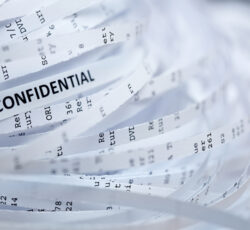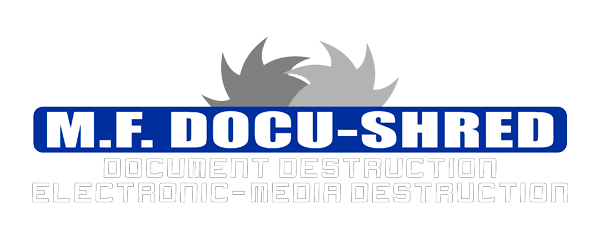
In this digital age, with the increasing threat of identity theft and data breaches, it is crucial to properly dispose of sensitive information. One effective way to protect yourself and your personal or business information is by shredding certain documents. Shredding ensures that confidential information cannot be easily accessed by unauthorized individuals. In this blog post, we will discuss the various types of documents you should shred to maintain your privacy and prevent potential fraud.
1. Financial Documents
Financial documents contain some of your most sensitive information, including social security numbers, bank account details, credit card information, and more. Shredding these types of documents is essential to safeguard against identity theft and financial fraud. Financial documents that should be shredded include:
– Bank Statements: Old bank statements, canceled checks, and credit/debit card statements should all be shredded. These documents often include your account numbers, transaction details, and other personal information that can be used by criminals to gain unauthorized access to your accounts.
– Tax Documents: After filing your taxes, it is essential to shred all supporting documents. This includes W-2 forms, 1099 forms, receipts, and any other documents related to your income or deductions. This safeguards your Social Security number, income information, and other personal details.
– Investment Statements: Statements from brokerage accounts, retirement accounts, and investment portfolios should all be shredded. These documents contain sensitive information concerning your investments and holdings, which could potentially be exploited by fraudsters.
– Loan Documents: Any documents related to loans, mortgage agreements, or credit applications should be shredded after they are no longer needed. These documents typically contain personal information and financial details, which can be used to steal your identity or commit other types of fraud.
2. Personal Identifying Documents
Certain personal identifying documents must be shredded to prevent identity theft and protect your privacy. These include:
– Social Security Cards: Your Social Security card should never be kept in your wallet or purse due to the high risk of loss or theft. When you need to dispose of it, make sure to shred it thoroughly.
– Driver’s Licenses and Identification Cards: When you receive a new driver’s license or ID card, be sure to shred the old one. These documents contain personal information that, if obtained by a criminal, could be used for fraudulent purposes.
– Passports: Expired passports or old passport applications should be shredded to prevent identity theft or misuse of your personal information.
3. Medical Records
Medical records are highly sensitive and contain confidential information about your health, insurance, and other personal details. Shredding medical documents helps protect your privacy and prevent medical identity theft. Such documents include:
– Health Insurance Statements: Explanation of Benefits (EOBs) and health insurance claims statements should be shredded after review. These documents contain sensitive information about your treatments, prescriptions, and medical provider information.
– Prescription Labels: Shred the labels from prescription medications before disposing of the bottles. These labels can include your name, address, and prescription details, which may be exploited by identity thieves or used for fraudulent activity.
4. Business Documents
If you own a business or have access to sensitive business information, it is crucial to properly dispose of certain documents to protect both your company and your clients. These include:
– Payroll Records: Pay stubs, time sheets, and any other payroll-related documents should be shredded after they are no longer needed. These documents contain personal employee information, including social security numbers and salary details.
– Client/Customer Information: Any documents containing customer or client information, such as names, addresses, and account details, should be shredded once they are no longer needed. This includes receipts, invoices, and client forms.
– Legal Cocuments: Shred any legal documents that contain sensitive information, such as contracts, agreements, or court documents. These documents often include personal information about individuals involved in the legal proceedings and should not be easily accessible.
Final Thoughts
By shredding these types of documents, you can significantly reduce the risk of identity theft, data breaches, and other fraudulent activities. Always ensure that you use a reliable shredding service or invest in a high-quality shredder to thoroughly destroy the documents. Protecting your information and privacy should be a top priority, and shredding the right documents is an essential step towards achieving that goal.
Got questions about our document shredding services? Let us help! Contact us today to learn more about what we can do for you!

